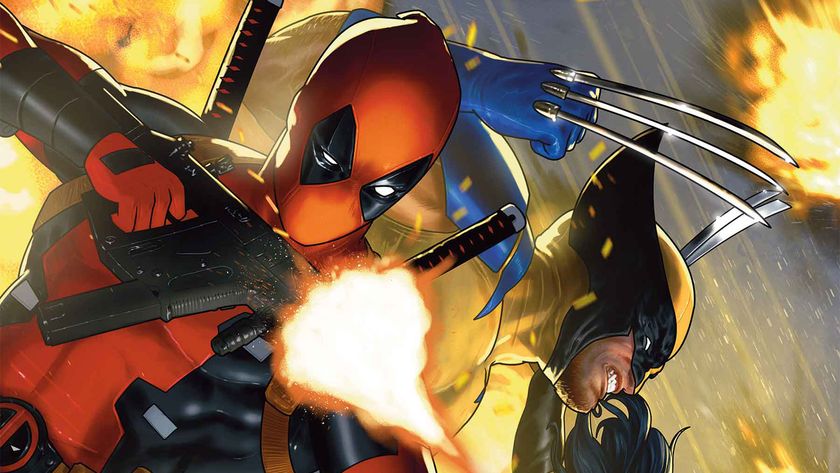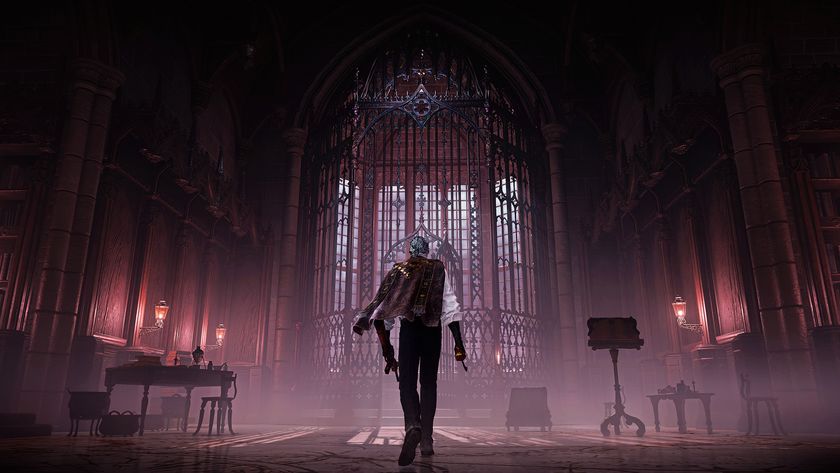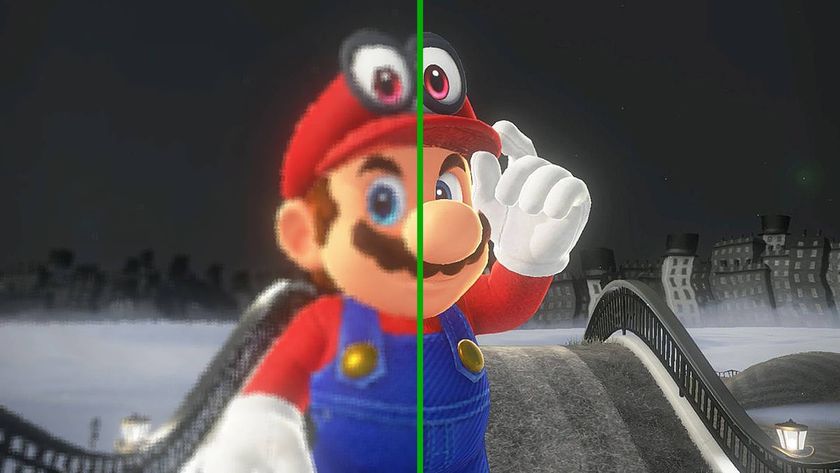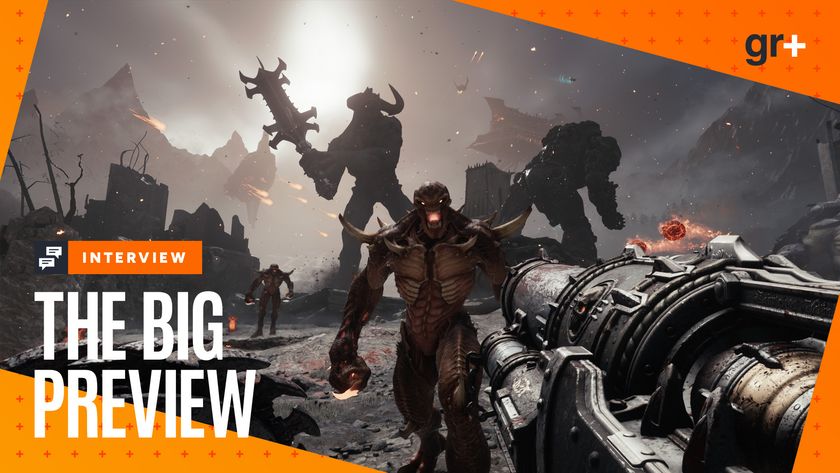How Aquaman fought against the tide to become one of DC's (and the movie industry's) biggest superheroes
Inside the evolution of Aquaman from B-list hero to A-list star
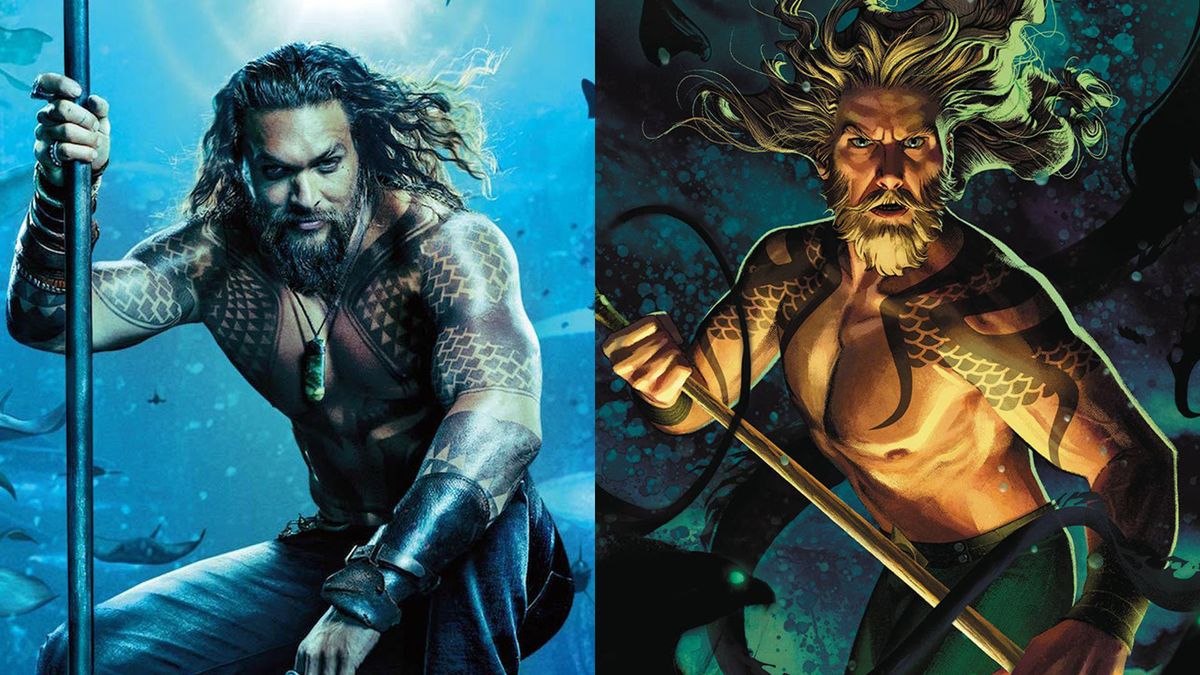
Aquaman is currently the highest-grossing film in DC history, but the character hasn't always been so well defined by DC.
Aquaman's history in comic books has taken him through some strange incarnations, but his heritage as an oceanic king - and his membership in the Justice League of America - have helped him remain one of DC's most popular characters more than 75 years.
"There's something about a sea-going hero that everyone loves," says Grant Morrison, the comic book writer who helped highlight Aquaman's strengths in the '90s. "When I was doing Aquaman in JLA, he was being written [in the solo Aquaman title] by Peter David, so they kind of brought to the fore the idea of the King Arthur of the oceans, and I loved that portrayal of him. He's not just the king of a country. He's a king of three-quarters of the Earth's surface in all of its depths."
David agrees, and tells Newsarama that he always saw the character as part of modern mythology.
"In all mythos, there is always a fascination with water and what's going on beneath the ocean surfaces," David says. "Three-quarters of this planet is water, and so it naturally makes sense that the possibilities it hides might be things that only dwell in our imagination. We know there's not really a Superman or a Batman, but humans living beneath the sea? Could be."
Evolving Mythology of Aquaman
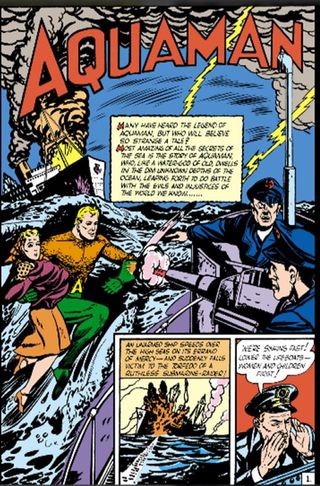
But the current definition of Aquaman's character as a regal half-human/half-Atlantean wasn't always part of his story. When the character debuted all the way back in 1941's More Fun Comics #73, he was written as a human being that had been changed scientifically into a water-breather.
"He was pretty bland in the '50s," Morrison admits, remembering how the science-based character's greatest adventures were simply fighting against pirates and threats to shipping lanes.
Comic deals, prizes and latest news
Get the best comic news, insights, opinions, analysis and more!
"Aquaman,in his early appearances, was definitely written for a wide-eyed, young audience," says Keith Giffen, who wrote the character during the '80s. "When Aquaman first appeared, he was riding around on seahorses, and it had a more childish air about it."
But that version of Aquaman's origin didn't have staying power, and in 1959, DC made him into Arthur Curry, the half-human/half-Atlantean royalty he remains today.
This new origin gave Aquaman a connection to both the mysterious oceanic world and the surface world, and according to Morrison, it was this "unknowing royalty" angle that really set him apart from other characters.
"With Aquaman, it's not just the idea of being the King Arthur of the seas, but of first being the prince who doesn't know he's secretly royal," they say. "It's a story people have always loved."
After his new origin story was introduced in comic books, Arthur rose to the throne as king of Atlantis and married an underwater queen named Mera. Subsequent Aquaman stories in the '60s introduced a slew of new characters to his mythos, including his half-brother Orm who would eventually become his nemesis, Ocean Master.
Aquaman and the Justice League
But perhaps no moment in Aquaman's history gave him such staying power as his inclusion in the Justice League of America when the team debuted in 1960's The Brave & The Bold #28, as well as the character's presence in the Super Friends TV show in the '70s and '80s.
Yet Aquaman's ongoing appearances in Justice League stories also highlighted the negative side of him, says Kurt Busiek, who wrote the character in the mid-'00s.
"Out of water, his powers aren't terribly special - he's strong, but lots of superheroes are strong. And being able to communicate with fish is an easy ability to mock when it's being compared against Superman, Wonder Woman, and the Flash," Busiek says.
Giffen says Aquaman became the butt of a lot of jokes from fans because of his Super Friends appearances.
"It felt a little ridiculous sometimes," Giffen says. "Every Justice League adventure had to have some way to have Aquaman get wet."
Strengthening the Aquaman character
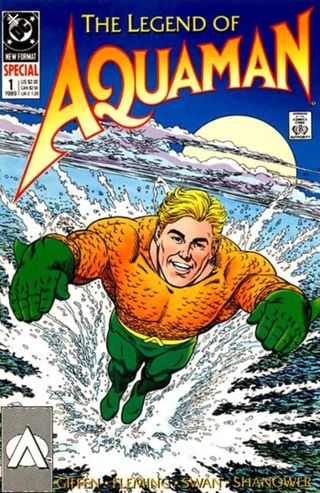
In the '80s and '90s, the character often struggled to find favor among fans, as writers tried new origins and drastic changes to make him more attractive to modern audiences.
The Aquaman revamp Giffen helped orchestrate during that era tapped into a deeper, richer mythology for the character, renaming him Orin and making him a full Atlantean. But some of the changes made were a little more drastic, and Giffen once told Newsarama that he questions their wisdom.
Later in the '90s, the character got another revamp from David, whose Aquaman series was the longest-running for the character.
"I wanted to make him something of a bad ass, in comparison to the somewhat goofy nice guy everyone remembered from the old Super Friends TV show," David says of his run.
The writer also got rid of Aquaman's clean-cut look, something the current Warner Bros. movie has echoed.
"When Zack Snyder first put up a picture of Jason Momoa as Aquaman, the modern day fans were saying, 'That doesn't look anything like Aquaman!' But the older fans were saying, 'No, that's Peter David's Aquaman,'" David says. "I'm flattered that the current movie version is thought of as 'my' Aquaman."
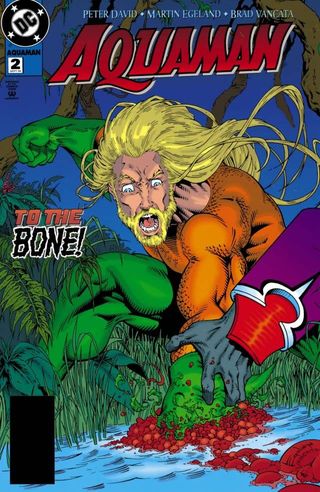
But one of the most remembered moments in David's run occurred in Aquaman #2, when Aquaman lost his left hand and, eventually, replaced it with a harpoon.
"I wanted to change Aquaman's image," David says. "I wanted him to intimidate people, and there's no better way to do that than have him with some sort of weapon. I selected a harpoon because it's a weapon that is typically used against his sea brethren, so now he had one that he can use against denizens of the surface."
Eventually, Busiek's run in 2006-2007 returned the character to his original, classic origin and mythology, but replaced him with a younger version. It wasn't until 2010's Blackest Night that the original character made his triumphant return at the hands of Geoff Johns, the comic book writer-turned-movie executive who also has a writing credit on the Aquaman film.
Aquaman's relaunch revival
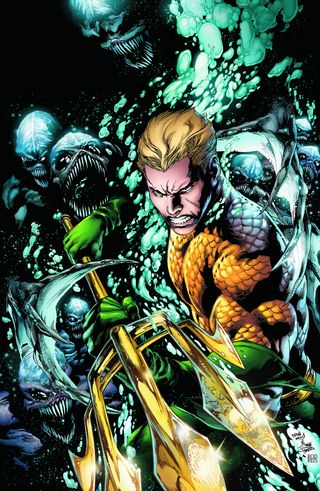
For several years after the character's return in Blackest Night, Johns and writer Dan Abnett continued to guide the character's evolution in comic books, including the return of characters like Mera and Ocean Master.
"I've always really been fascinated with the character," Johns told Newsarama at the time of his new Aquaman comic book's launch in 2011. "I think there's a great world to explore with that character, with the ocean and the mythology that comes with that. And creating new things for that world, and expanding it, was compelling to me as a writer. I thought it was a great challenge."
Johns also embraced the "humorous" perception of Aquaman.
"Aquaman is this guy who, on land, he's kind of laughed at," the writer said. "But in the ocean, he's supposed to be the king of this huge underwater society, so there's a weird juxtaposition between those two roles. And he prefers to be on land, and his job is to protect the land from sea and the sea from land. So he's literally caught in the middle of all these things.
"I think everyone [can] relate to Aquaman. I think he's very, very human, because of all that," Johns said. "But he's also admirable because he does step up and take care of business, and he doesn't let what anyone says stop him. He lets it roll right off his back like water."
Aquaman's newer developments
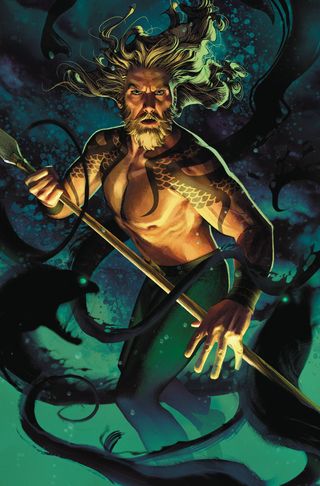
Although the Aquaman film echoes many of the character's more beloved history, the character continues to go through new incarnations in the comic books.
After an arresting period where he had amnesia, Aquaman regained his memory and returned to his life - even marrying his long-time lover Mera, after they welcomed a child together named Andy.
And in Scott Snyder's recent Justice League run, Aquaman's superpowers were linked to a 'Life Force' that connects all Earth's creatures.
"Aquaman's powers are what they've always been," said current Justice League writer Scott Snyder. "But we wanted to kind of go back and see if there's a way to expand the meaning behind them."
Whatever comes next for the character, mainstream audiences will probably know him best (for at least the near future) as the character portrayed in the Aquaman film. And his story in comic books will continue to evolve.
Make sure you've read the best Aquaman stories out there.
Vaneta has been a freelance writer for Newsarama for over 17 years, covering Marvel and DC, and everything in between. She also works in marketing.
